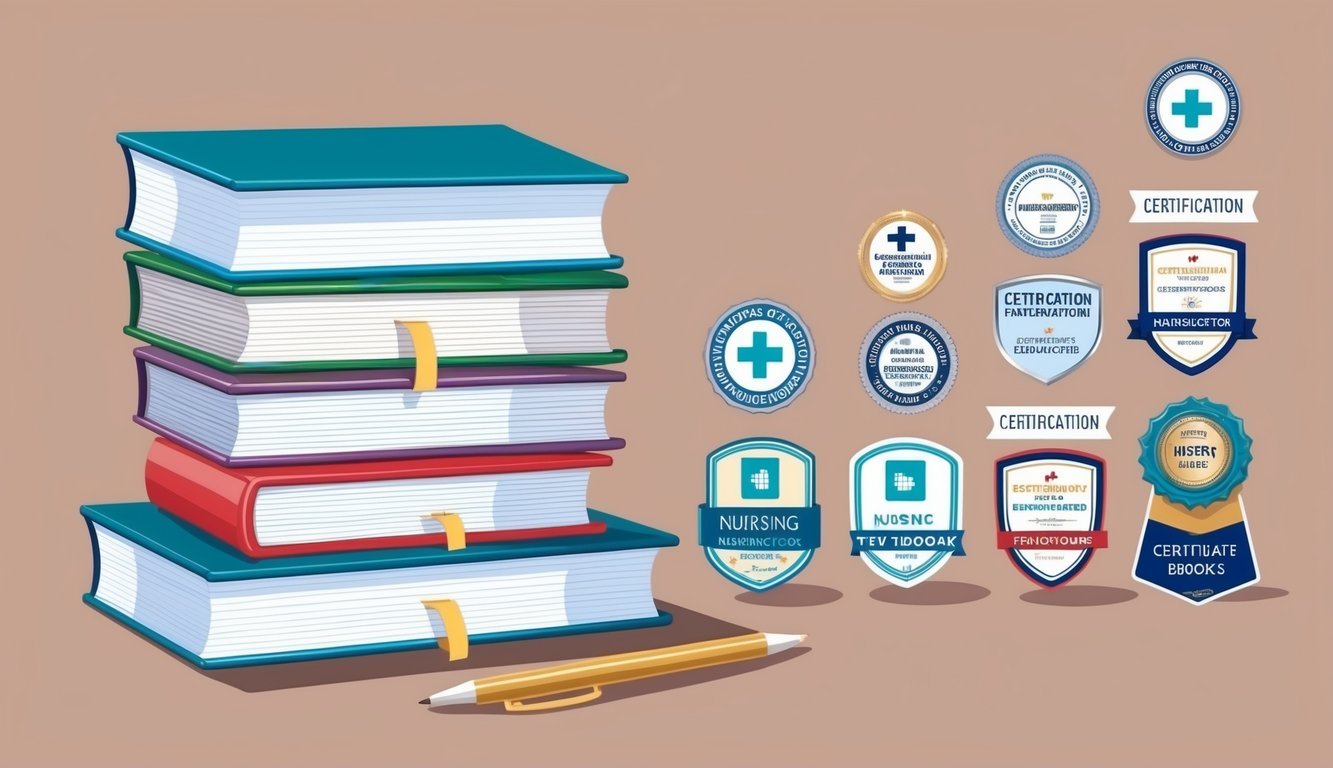Navigating the nursing profession can be overwhelming, especially when it comes to understanding the various levels of nursing.
As you embark on your nursing career, it’s essential to be aware of the different roles available and the educational requirements associated with each.
The nursing profession comprises distinct levels that range from practical nurses to advanced practice registered nurses (APRNs), each offering unique opportunities and responsibilities.
Each level of nursing plays a critical role in healthcare, from providing direct patient care to engaging in specialized fields such as nursing education or nursing informatics.
For instance, starting with a Diploma Nurse or an Associate Degree in Nursing (ADN) can lead to foundational experiences that allow you to progress through the ranks.
Exploring the hierarchy of nursing will help you make informed decisions about your education and career path.
As you learn about nursing levels, it’s helpful to consider how your interests align with specific roles.
Whether you aim to be a nurse educator or aspire to advanced clinical positions, understanding the requirements and expectations at each level can guide your journey.
Discover how different nursing levels impact your opportunities and professional growth by checking out resources like A Guide To The Nursing Hierarchy and What Are the Levels of Nursing?.
Education and Certification for Nursing
Nursing education encompasses various entry-level programs and advanced degrees that prepare you for a successful career in healthcare.
Understanding these pathways is crucial for achieving your professional goals and obtaining the necessary certifications.
Entry-Level Nursing Education
If you’re starting your nursing career, you’ll likely pursue one of these foundational programs:
| Program Type | Duration | Overview |
|---|---|---|
| Certified Nursing Assistant (CNA) | 4-12 weeks | Provides basic patient care and support tasks. |
| Licensed Practical Nurse (LPN) | 1 year | Focuses on basic nursing skills under supervision. |
| Associate Degree in Nursing (ADN) | 2-3 years | Offers foundational education in nursing; prepares you for RN licensure. |
CNA programs are ideal for those looking to enter the workforce quickly.
LPN programs require additional training and include more hands-on clinical experience.
The ADN prepares you for an RN role and sets the stage for further education.
Advanced Nursing Degrees
Once you have some experience, advancing your education can open many doors.
Consider these options:
| Degree Type | Duration | Focus Area |
|---|---|---|
| Bachelor of Science in Nursing (BSN) | 4 years | Offers deeper knowledge of nursing practices and leadership. |
| Master of Science in Nursing (MSN) | 2-3 years | Specialized training for roles in administration, education, or advanced practice. |
| Doctor of Nursing Practice (DNP) | 3-4 years | Focuses on clinical practice, leadership, and policy development. |
A BSN degree often enhances career opportunities and earning potential.
An MSN allows for specialization in areas like nurse practitioner roles or education.
The DNP prepares you for top-tier positions within the healthcare system.
By pursuing the right educational path and obtaining the relevant certifications, you can effectively advance your nursing career.
Be sure to explore programs that suit your career aspirations and comply with nursing best practices.
Licensing Examinations and Credentials

Understanding licensing examinations and credentials is essential for your progression in nursing.
These components ensure you meet the necessary standards to practice safely and effectively in your chosen nursing role.
National Council Licensure Examination
The National Council Licensure Examination (NCLEX) is vital for becoming a licensed nurse in the United States.
There are two primary versions:
- NCLEX-RN for Registered Nurses (RNs)
- NCLEX-PN for Licensed Practical/Vocational Nurses (LPN/LVNs)
Each exam assesses your knowledge and skills in a clinical setting through various question formats, including multiple-choice.
Before you can take the NCLEX, you must complete an accredited nursing program and apply for licensure with your state’s nursing board.
The exam tests your readiness for safe, effective practice in nursing.
For additional information on the NCLEX, visit NCSBN.
Clinical Certifications
In addition to initial licensure, you can pursue clinical certifications to enhance your expertise.
These certifications demonstrate specialized skills and knowledge in specific areas of nursing practice.
Common clinical certifications include:
- Certified Nurse Practitioner (CNP)
- Certified Clinical Nurse Specialist (CNS)
- Certified Registered Nurse Anesthetist (CRNA)
- Certified Nurse Midwife (CNM)
Each credential requires additional education, clinical experience, and passing specific certification exams.
Obtaining these credentials can improve job prospects and career advancement opportunities.
Explore more about nursing certifications at NurseJournal.
Nursing Roles and Responsibilities

Understanding the various roles in nursing is essential for grasping how patient care is delivered.
Each level in the nursing hierarchy has distinct responsibilities that contribute to healthcare.
Nursing Assistants and LPNs
Certified Nursing Assistants (CNAs) provide basic care and assist patients with daily activities, such as bathing, grooming, and feeding.
Their role is crucial in ensuring patient comfort and safety in settings like hospitals and long-term care facilities.
Licensed Practical Nurses (LPNs) have a more advanced scope of practice.
They perform tasks such as administering medications, monitoring patient vital signs, and collaborating with registered nurses to create care plans.
LPNs often work in long-term care or rehabilitation facilities and may supervise CNAs.
Registered Nurses
Registered Nurses (RNs) hold a key position in healthcare.
They assess patient needs, develop and implement nursing care plans, and educate patients about health conditions.
RNs often specialize in areas such as:
- Pediatrics
- Geriatrics
- Emergency Care
RNs require a Bachelor of Science in Nursing (BSN) or an associate degree.
Their critical thinking and clinical skills are vital for effective patient management.
Advanced Practice Nurses
Advanced Practice Nurses (APNs) include Nurse Practitioners, Clinical Nurse Specialists, Nurse Anesthetists, and Nurse Educators.
Each role serves distinct functions:
-
Nurse Practitioners (NPs) can diagnose and treat various conditions, often working independently or in collaboration with physicians.
-
Clinical Nurse Specialists focus on specific patient populations or clinical issues, improving health outcomes through advanced clinical knowledge.
-
Nurse Anesthetists administer anesthesia and monitor patients during surgical procedures.
-
Nurse Educators train future nurses, shaping the next generation of healthcare professionals.
Each role requires a Master’s degree or higher, reflecting advanced expertise in nursing practice.
Career Progression and Specializations
As you advance in your nursing career, multiple paths become available, allowing you to explore various specializations and leadership roles.
These trajectories can enhance your skills and expand your professional opportunities.
Nursing Specialties
Nursing offers numerous specialties for those seeking to refine their skills.
Some key areas include:
- Clinical Nurse Specialist (CNS): An expert in a specific patient population, focusing on improving patient outcomes.
- Certified Registered Nurse Anesthetist (CRNA): Provides anesthesia and anesthesia-related care, requiring advanced education and certification.
- Nurse Manager: Responsible for overseeing nursing staff and operations within a specific unit, ensuring high standards of patient care.
These roles typically require additional education and training, such as a Master’s degree.
Many nurses also pursue certifications in their chosen specialty, which can lead to increased job prospects and higher salaries.
For more detailed information, explore the levels of nursing practice.
Leadership and Management in Nursing
Transitioning into leadership or management can be a rewarding career move.
In these positions, you influence staffing, budgets, and patient care standards.
- Chief Nursing Officer (CNO): Overseeing nursing practices at the organizational level, impacting policy and strategic development.
- Health Informatics: Combining nursing expertise with IT skills to improve healthcare delivery through technology.
Pursuing graduate education in nursing management or health informatics can enhance your qualifications.
These roles enable you to shape the future of patient care while developing your leadership abilities.
The Role of Nurses in Healthcare
Nurses play a critical role in healthcare, ensuring patient safety and well-being while promoting health education and community engagement.
Their expertise spans various settings, emphasizing patient-centered care and advocacy.
Patient Care and Advocacy
As a nurse, your primary responsibility is to provide direct patient care.
This involves assessing patient conditions, administering medications, and coordinating treatment plans.
You utilize nursing best practices to deliver care that meets high standards of safety and efficacy.
You also serve as a patient advocate, ensuring that individuals receive the resources and support they need.
This may include facilitating communication between patients and their healthcare teams, educating them about their conditions, and helping navigate healthcare systems.
In advanced roles, such as a nurse practitioner (NP) or advanced practice registered nurse (APRN), you can diagnose conditions and prescribe treatments.
This expanded scope empowers you to make significant contributions to patient outcomes.
Community Health and Education
Your role extends beyond individual care to include community health.
You are instrumental in promoting public health initiatives and programs designed to educate populations about disease prevention and healthy lifestyle choices.
Through community outreach, you can provide screenings, vaccinations, and health information sessions.
You can also tailor educational strategies to meet community needs effectively by understanding cultural and social factors.
By engaging in public health campaigns, you help raise awareness about critical health issues, promoting better health practices.
This approach not only enhances community health but also fosters a more informed public regarding available healthcare services.

